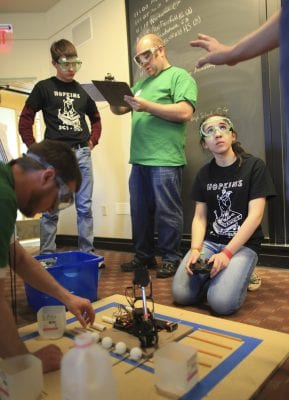 Our recent research on 40 successful college students with Autism Spectrum Disorder (ASD) suggests successful high school learning opportunities were linked to their ability to do so well in college. Of particular interest was the importance of extracurricular activities, such as music, clubs, and sports. The majority of our sample reported their involvement in extracurricular opportunities, such as robotics, computer clubs, swim team, cross country, debate club, school newspaper, choir, tennis, and various clubs.
Our recent research on 40 successful college students with Autism Spectrum Disorder (ASD) suggests successful high school learning opportunities were linked to their ability to do so well in college. Of particular interest was the importance of extracurricular activities, such as music, clubs, and sports. The majority of our sample reported their involvement in extracurricular opportunities, such as robotics, computer clubs, swim team, cross country, debate club, school newspaper, choir, tennis, and various clubs.
Several explained that participating in these types of experiences made them feel good about themselves and enabled them to pursue their areas of interest. Some of them struggled initially as they experienced some social struggles and then they had to decide whether to stay with the club or sport or try something else. One of our participants explained that he tried several different extra-curricular experiences and learned from the earliest ones and then moved on to those that made the greatest impact on him. In clubs, this was often an experience that was more hands-on and action oriented, such as making films. The opportunity to pursue interests was discussed by several of our participants, as some explained how good it felt to help others as part of the work they were doing. For example, some of these young women and men participated in community outreach and volunteer clubs that then led to other opportunities, such as working at farmer’s markets and volunteering with senior citizens.
Some of our research participants also explained that they had founded or started various extra-curricular activities, suggesting that some of the high school teachers of this group encouraged them to start extra-curricular activities based on their interests. For this group of 2e students, intelligent college students with ASD, the positive and creative extracurricular activities that they pursued in high school helped them eventually to succeed in college. These opportunities were beneficial in developing their interests, their social competence and knowledge of how to pursue their interests and work with others. These extra-curricular opportunities enabled these 2e ASD students in our study to learn how to work in a team, how to share and assume responsibilities, how to deal with conflict, and how to create a community, based on interests. Extracurricular activities provided this group an enjoyable way to apply some academic and social skills in a real-world context, contributing to their subsequent success in college.